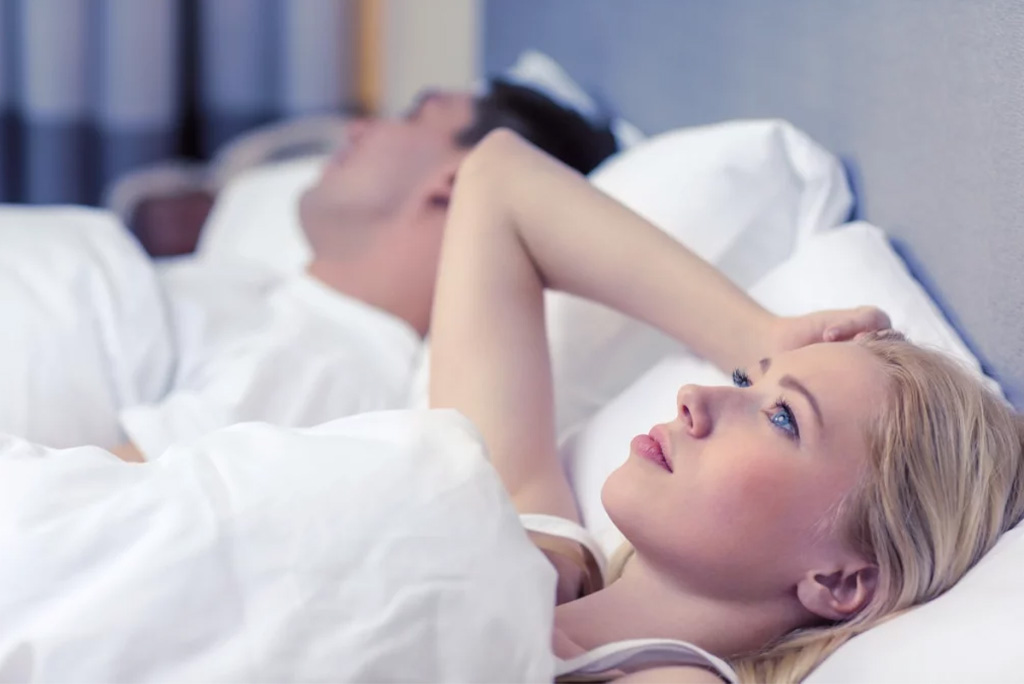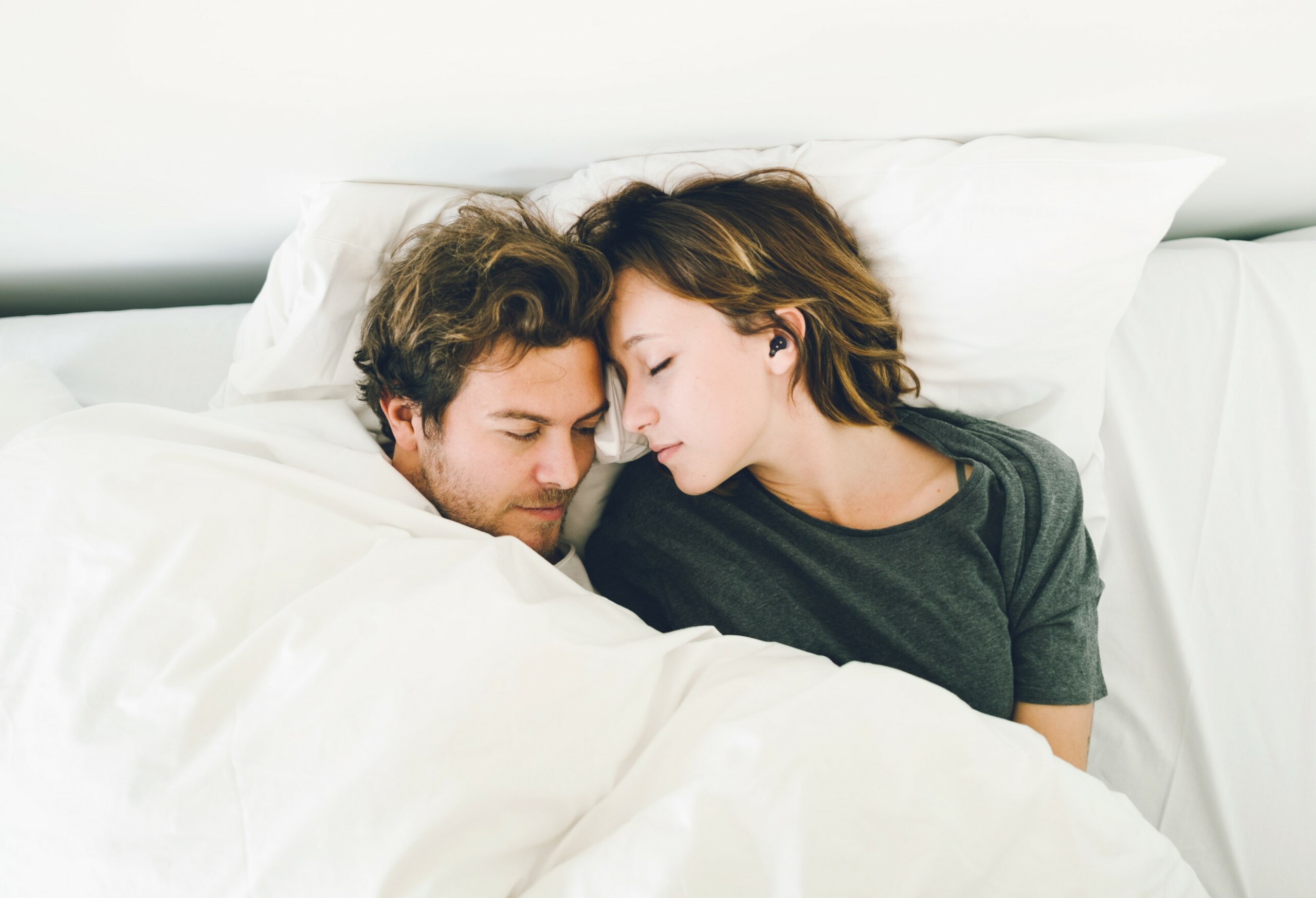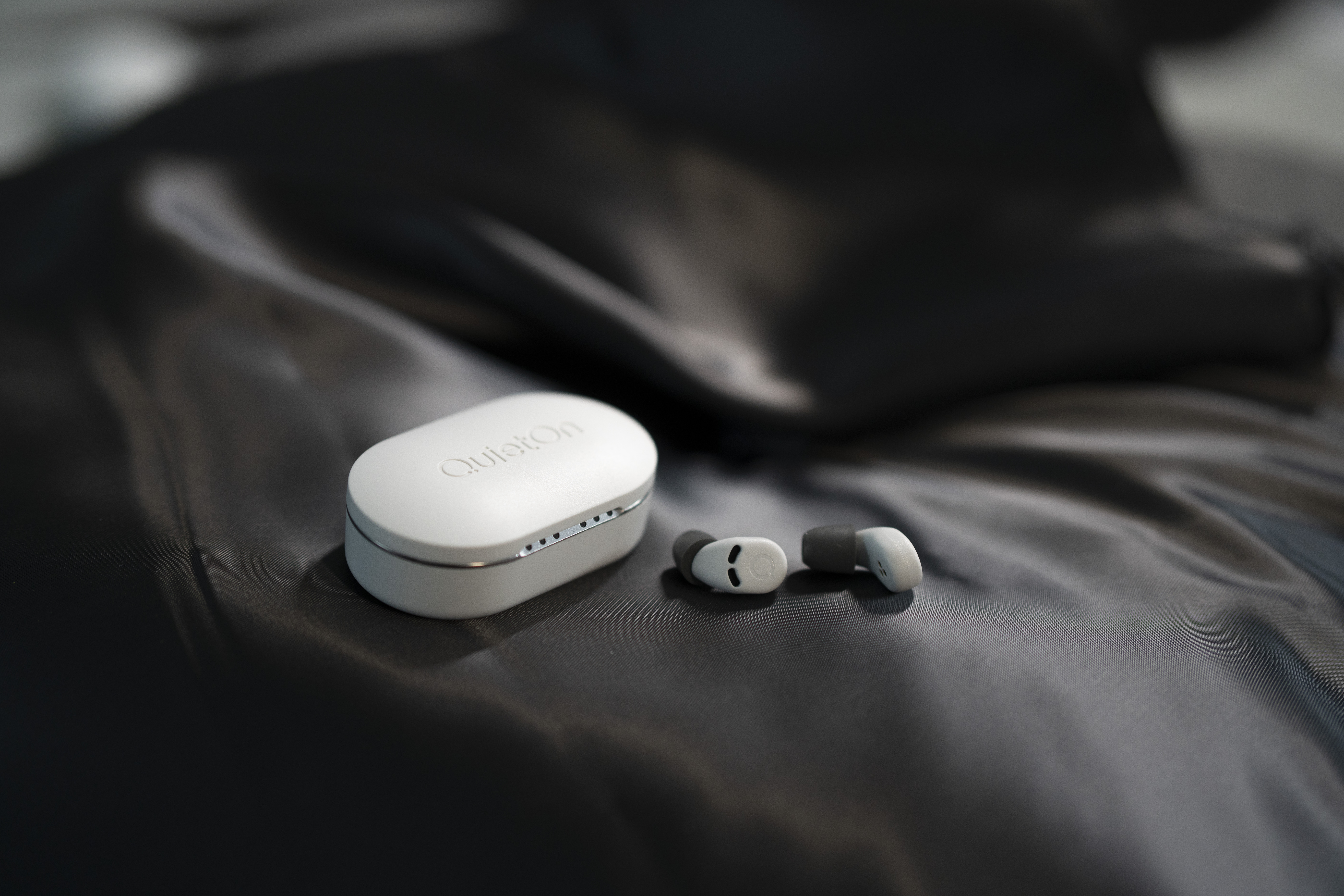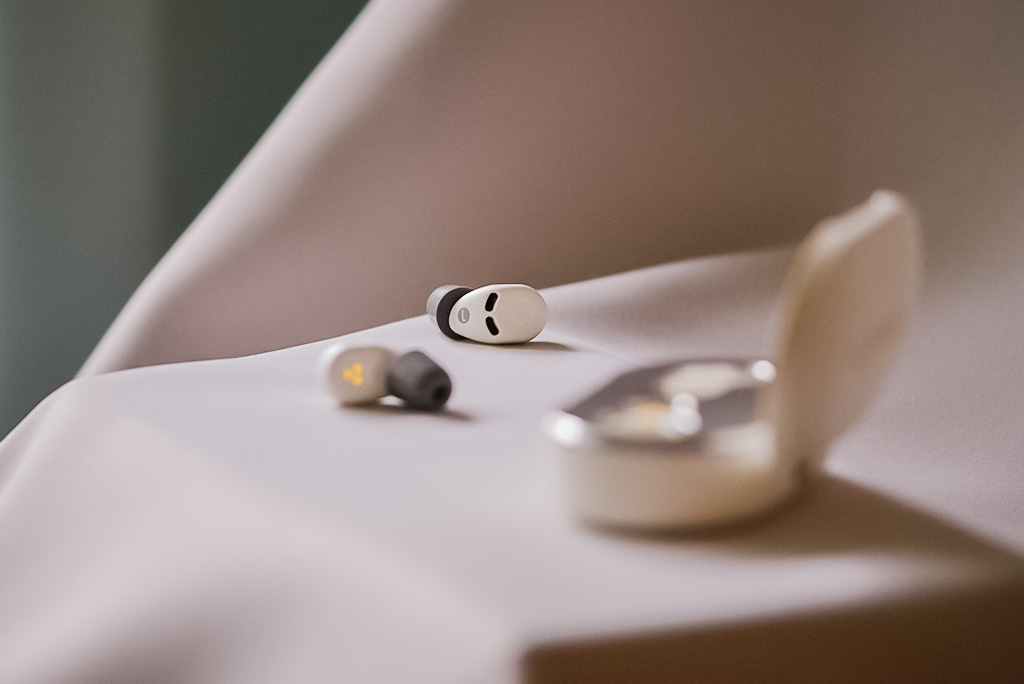Your cart is currently empty!
Types of Stress Part 2: I Can’t sleep
“I can’t sleep” is the second article from our specialty series. It focuses on the correlation between sleep and stress. The first article reviewed different causes of stress. In this article we’ll be going through the following subjects. Sleep and stress Can stress make you tired? Not able to get to the slumberland? Signs of…

“I can’t sleep” is the second article from our specialty series. It focuses on the correlation between sleep and stress. The first article reviewed different causes of stress. In this article we’ll be going through the following subjects.
- Sleep and stress
- Can stress make you tired?
- Not able to get to the slumberland?
- Signs of stress preventing you from sleeping
- Can stress make you tired while you sleep?
- I can’t sleep because I stress or I stress because I can’t sleep?
- Sleep remedies against stress
Sleep and stress
Everyone knows the feeling when something bugs out so much it’s difficult or even impossible to sleep. Since stress-related issues have become growing problems and thus recurring subjects in the public discussion, also the scientific correlation between stress and sleep has become common knowledge.
In the earlier article we sifted through different sources of stress, aka stressors. As we mentioned, our system is not especially good at specifying them and this way problems can either be caused by a single stressor or by a cumulative effect. Same applies when it comes to sleeping. A key in getting on to yourself, if you suspect stress is playing tricks on your sleep, is identifying the possible signs and symptoms.
Why does our body react this way? And how does it actually happen? These are the real questions when you are on a quest for better understanding of stress, learning how to prevent its effects and ultimately getting a good night’s sleep.
Can stress make you tired?
The answer to this question seems obvious but somehow a simple ‘yes’ feels elusive. When you stop to think about it, is it really stress that’s making you tired or is it merely a result of a stressful situation?
Imagine picking up your kid from the daycare and finding out from the worker that there has been a spaghetti incident. By the time you’re finally through making rounds of apologies and reprimanding your little scallywag, you realize the rest of the day is going to be an avalanche of chores overlapping each other. This means there is no way you’re going to hit the sack in time to get a decent night’s sleep.

In this example you would have experienced a series of stressful situations, no doubt, but even with a reduced sleeping time, might still have fallen asleep quickly and slept soundly. Nitpicking or not, this is just to point out that stress can easily become a scapegoat. However, now that we’ve bored you with the details of a day in your imaginary family, we might as well pull the curtains and admit it: yes, also stress in itself can make you tired. Next we’ll take a look on how and why.
Not able to get to the slumberland?
Probably the most obvious way for stress to make you tired is to hinder your ability to fall asleep or to prevent you from sleeping altogether. Remember the sabretooth from types of stress part 1? When we are stressed out, we are in an elongated state of the same fight-or-flight response our ancestors needed to have a chance of surviving a face-to-face with their toothy opponents. Or us with a city bus for that matter. As this is a state supposed to keep your body and mind on edge, it’s no wonder it might take a little time and effort to relax enough for the drowsiness to kick in.
Even though it’s easy to think that getting as much unfinished work done before hitting the hey would be a smart move, the truth might be the opposite. The same goes with entertainment such as watching a show or especially playing a game. Of course, what’s done and finished is not necessarily a cause for stress anymore and taking your mind off of things with your favourite pastime might in fact be a huge stress-reliever.
What you should realize is, the more challenging something is to your brain, the more active it needs to stay. Getting your brain on a high gear just before bed (or in bed) both disrupts your sleep and exposes you in turn to even more stress related issues. Just check out this witty listing. Even though an episode or two of your favourite show after a hard day’s work might be more than earned, is it smart to leave the lights on in the attic even though the bill only needs to be paid later?
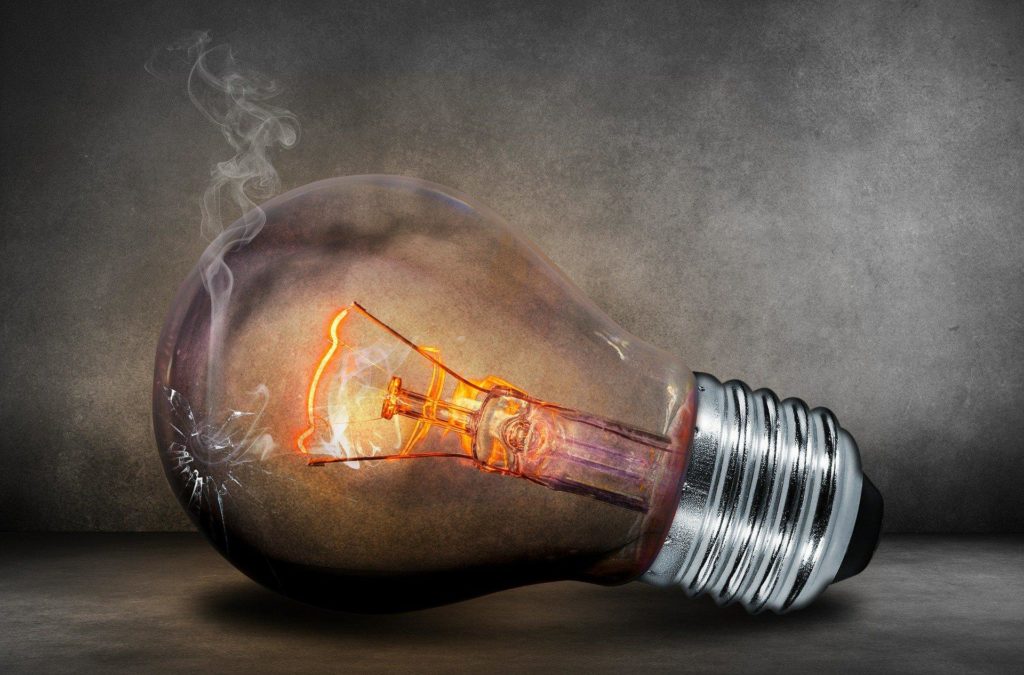
Now that we mentioned light, there’s also the factor of light’s blue wavelength, which most desktops and screens emit. The blue light is known to be harmful for our natural sleeping pattern called circadian rhythm as well as our own melatonin production. Melatonin is supposed to help in reducing the time we need to fall asleep and to stay asleep.
Signs of stress preventing you from sleeping
Just like Lady Gaga’s Bad Romance has the potential of ruining your peace of mind as a never-ending earworm, a worrying thought such as a real life bad romance can become a similar loop that is difficult to shut off. Wincing among endless thought cycles of worries and frustrations and contemplating on ramifications without being able to cut them off is a solid sign of stress interfering with your ability to fall asleep.
There’s also another sign of stress that’s really close to your heart. That is to say your heart. Or to be more precise, having it racing. Obviously, an elevated heart rate often follows the aforementioned difficult thoughts but can also be a symptom of stress in itself. No matter how tired you are after a strenuous run there’s probably something seriously wrong with you if you can fall asleep immediately after it. Well, it doesn’t always take running to get the feeling…

Another bodily sign of stress being the bad seed in your garden of dreams is muscle tension or pain. There are obviously a ton of ways to get your neck tense or head to ache such as poor ergonomics, draft, draft beer and the lack of exercise or muscle maintenance but they can also be results of you being too stressed out. Getting your eyes checked out for a new pair of glasses or paying a visit to your friendly neighborhood pillow store might do the trick but suffering from these kinds of pains while checking boxes on other stress-induced symptoms might be a sign of something more sinister.
Can stress make you tired while you sleep?
We almost can’t believe we came up with that sentence by ourselves, but nevertheless it got you thinking, didn’t it? As we mentioned in the beginning, stress affecting our sleeping has been a given for ages but is still often mostly affiliated to the trouble of getting asleep. “I’m so stressed out I can’t sleep” is a common phrase but almost as often it includes the thought of “If only I would fall asleep, everything would be okay”.
If only this was the case too, but unfortunately some stress-related effects on sleep occur without us experiencing them consciously. One of these effects is waking up multiple times during the night. Oh, and this doesn’t mean going to the bathroom or to get a glass of water, unless you’re a sleepwalker. What can happen when you’re stressed out, is that you’re still able to nod off but sleeping what can only be described as “dogs sleep”.
Some of these shorter awakenings can of course be conscious but often they’re not. When you’re this wired it’s also easy to get the time you spend in the deep restorative sleep reduced. As a result, it’s possible to wake up even after a lengthy night’s sleep feeling like you haven’t slept at all.
I can’t sleep because I stress or I stress because I can’t sleep?
What can be extremely infuriating with stress-induced sleeping problems is that sometimes you absolutely positively know the one thing your body and mind need the most is a good night’s sleep but you just can’t deliver. What can be even more frustrating to know is that if you sleep poorly, you’re even more vulnerable to stress the next day. Right about now you might almost see with your mind’s eye a snake eating its own tail.

But even if you’re more prone to focus on the stress that is causing you to sleep poorly or the stress about stressing, the important thing is to cut the cycle.
At this point it’s good to realize that the phrase ‘I can’t sleep’ can have two meanings. In addition to not having the ability, it can also imply to not having the know-how or not being especially good with it. At first the idea of sleeping requiring special skills might seem funny but at the same time it should be taken into account how different the modern lifestyle is to the one that is natural to us. Even if life used to be a lot harder, grueling even, some of today’s conveniences also put a strain on us that we are not yet adapted to as a species. Great example being all the lighted screens that put a spin on our inner system of recognizing what time of day it actually is.
Often the sleep disrupting factors such as
- poor nutritional choices
- staying up late binge-watching or
- exercising too close to bedtime
as well as the stress that follows, are self-taught. In this sense the more accurate choice of words would be that we need skills in enabling sufficient preconditions for sleeping than actual “sleeping skills” but you get the drift.
Everyone experiences some sleep-related trouble during their life and not all of it is necessarily serious. However, since sleep is often said to be the single most important factor in human well-being, problems shouldn’t be left untreated for too long either. When stress is given the opportunity to keep disrupting sleep, it’s possible for a temporary insomnia to develop into chronic stress induced insomnia, explained in depth here.
Sleep remedies against stress
If you consider your life to be overall stressful, basically any kind of stress relief can be considered as a method of enabling better sleeping conditions. As trying to fix everything at once is often a way to become even more stressed out and quickly end up repeating same old habits, it might be smarter to approach problems one at a time. While doing that, it’s important to be merciful to one-self since making changes and adopting new habits can take time.
When it comes to stress-related sleeping problems, timing is everything. Since problem solving pretty much falls under the same category of activities as video games, it’s not recommended just before hitting the pillow. Organizing your timetable to allow sufficient sleeping time is a matter of active daytime.
Besides video games, another thing worth avoiding before and during bedtime is noise. When there’s noise, there’s usually interruptions and with interrupted rest, there’s stress. This is a wide topic and you’d probably like to take a look about our earlier post: silence vs. noise masking.
Meditation and breathing exercises on the other hand are excellent sleep remedies to be used near bedtime. In addition to the fact that studies have shown they reduce stress hormone levels, they are in themselves calming and relaxing activities. Just don’t forget to leave enough time for both relaxing and sleeping so that you don’t end up with a zero-sum situation.
In fact, it might be beneficial to refine a so-called pre-sleep ritual. This can be whatever works for you in a calming manner, may it be a cup of relaxing tea, a warm bath or a light massage from your significant other.
Now that we got down to business let’s not forget to mention the one built-in stress-reliever nature has given us: sex. In addition to stress-reducing hormone production, sexual activity provides a lot of other effects that are beneficial to stress management and in this way work as sleep remedies as well. As always, just don’t overdo it!
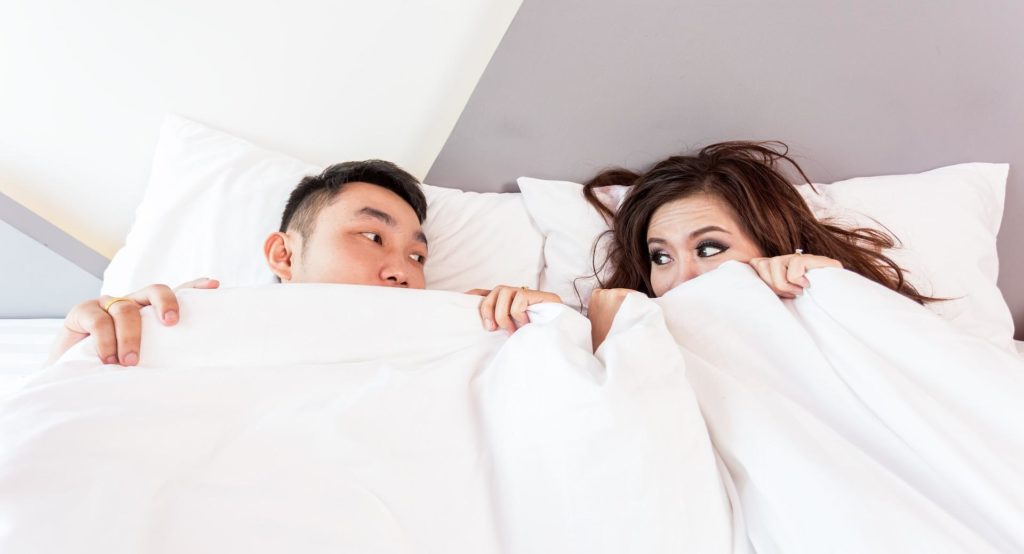
References
https://www.livescience.com/57618-meditation-lowers-stress-body.html
https://www.menshealth.com/health/a19528785/how-email-hurts-your-health/
https://www.mayoclinic.org/diseases-conditions/insomnia/symptoms-causes/syc-20355167
https://www.ncbi.nlm.nih.gov/pmc/articles/PMC4266573/
https://www.psychologytoday.com/us/blog/ravaged-minds/201911/why-sleep-is-the-most-important-part-your-day
https://www.sciencedirect.com/science/article/abs/pii/S016517811300320X
https://www.sleep.org/is-it-bad-to-watch-tv-right-before-bed/
https://www.sleepadvisor.org/stress-and-sleep/
https://www.verywellmind.com/sex-as-a-stress-management-technique-3144601


